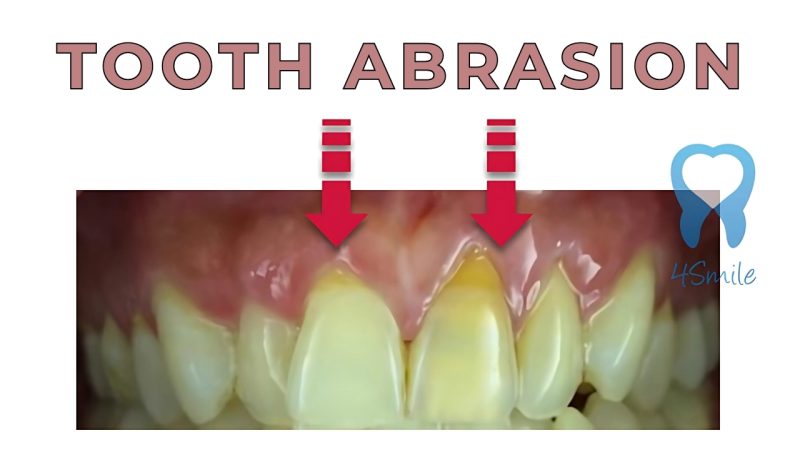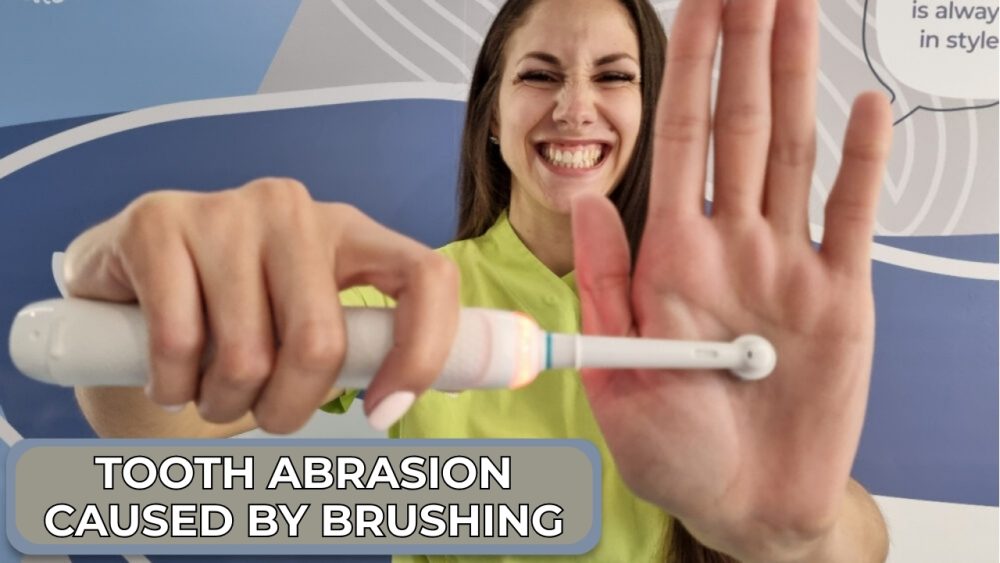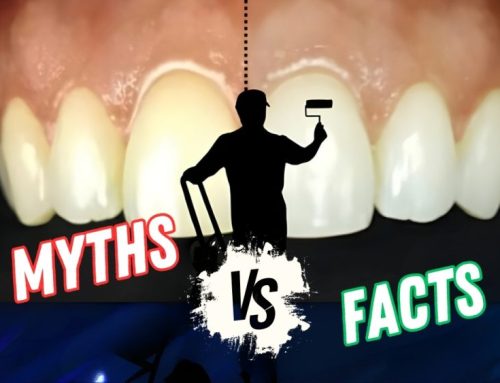In this week’s blog by Dental Center 4Smile, we reveal the most common causes of tooth abrasion, the signs and symptoms,
treatment options, and how to prevent it.
Toothbrush abrasion is the most common cause of tooth abrasion.
Tooth abrasion is linked to improper brushing techniques and toothbrushes with hard bristles. When a person regularly brushes their teeth with a hard-bristled toothbrush, over time the bristles damage the tooth surface, creating fine grooves.
Gradually, these depressions become deeper and wider, reaching the sensitive layer beneath the enamel called dentin. This yellow layer of dentin contains sensitive nerves, which is why pain may be felt when consuming hot, cold, acidic, or sweet foods and drinks. This type of abrasion mostly occurs near the gumline.

CAUSES OF TOOTH ABRASION
Tooth abrasion develops over time, and the most common causes include:
- Incorrect brushing techniques
- Increased frequency of brushing
- Excessive pressure when brushing
- Use of hard-bristled toothbrushes
- Use of abrasive toothpaste
- Frequent friction on enamel from external materials such as oral jewelry, teeth grinding, or improper bite
SIGNS AND SYMPTOMS OF TOOTH ABRASION
Grooves on the tooth surface develop along the gumline.
Some signs and symptoms include:
- Worn tooth enamel surface
- Increased sensitivity due to enamel loss
- Tooth decay (caries)
- Tooth loss
TREATMENT OF TOOTH ABRASION
Unfortunately, tooth abrasion cannot be reversed. Once enamel is worn away, it does not grow back. Treatment falls into one of three categories depending on the severity:
Mild scratches: The initial stage of abrasion can be treated with dental fillings or ceramic chips (small ceramic pieces) that cover the exposed dentin, preventing further damage and sensitivity. It is also essential to switch to a soft-bristled toothbrush and adjust brushing pressure and technique.
Moderate abrasions: For moderate cases, ceramic veneers or ceramic crowns are most often used to protect the dentin. A soft-bristled toothbrush and proper brushing technique are also recommended.
Severe abrasions: Severe sensitivity and pain caused by deep grooves in the enamel often require root canal treatment (endodontics), followed by a post and crown restoration before covering the tooth with a ceramic dental crown. Special attention should be given to the type of toothbrush and brushing technique.
HOW TO PREVENT TOOTH ABRASION?
- Use fluoride-rich toothpaste to strengthen enamel
- Avoid aggressive brushing techniques
- Use a non-abrasive toothpaste and a soft-bristled toothbrush
- Hold the toothbrush at a 45-degree angle and brush in gentle circular motions, moving the gum toward the tooth
- Stop habits such as nail biting or chewing hard objects
Visit your dentist regularly to ensure your teeth stay as healthy as possible!








